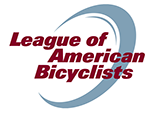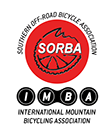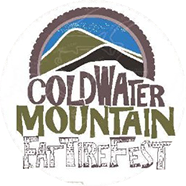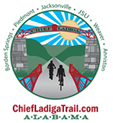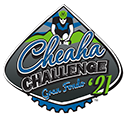
Northeast Alabama
Bicycle Association
Come Ride With Us!!
Bike Laws / Legal Resources
What To Do In a Crash - Submitted by Deanna Powers, Personal Injury Help.
Alabama Cycling Laws - Provided by the Alabama Bicycle Coalition
Local Bike Shops
Wigs Wheels - Anniston, Alabama
Fun Wheels Bicycles - Oxford, Alabama
Gadsden Outfitters - Gadsden, Alabama
Bicycle Repair and Maintenance
Bicyle Tutor - A comprehensive site with a large library of "how-to" videos.
Sheldon Brown - One of the best technical resources for cycling on the Internet.
Bicycle Repair Guide - Another site with plenty of "how-to" information.
Park Tool - Specialty Tools and "how-to" guides
Online Cycling Magazines
Cycling Organizations
Bicycle Buyers Guide
Bike Buying Guide - Consumer Reports, http://www.consumerreports.org/cro/bikes/buying-guide.htm
Getting In The Right Gear
Decide What Kind of Riding You'll Do
That will narrow your choice to one of the four basic types. If you're an avid cyclist, you may prefer a conventional road bike. Looking for a leisurely ride on flat, paved roads? A comfort bike may be more your speed. If rugged trails are in your sights, than a mountain bike might be best.
Find a Good Bike Shop
You'll pay more, but we think you're more likely to be satisfied. Bikes from big-box stores might not be properly assembled or well matched to your body. If you don't like the pedals or seat on a particular model, some bike shops will swap components at little or no cost.
Take a Test Ride
Before you buy any bike, ride it far enough to make sure that the brakes and shifters are easy to use, the fit is comfortable, the gears can go low enough for climbing hills, and the frame and suspension adequately smooth the bumps.
Avoid Cheap Bikes, Except for Very Casual Use
Inexpensive bikes—those selling for less than about $200, often in big-box stores—may seem like good deals, but we advise spending $300 or more, if your budget allows. Why? Because you'll get a lot more bike for your buck.
Mass-market bikes have cheaper construction than higher-priced bikes and can weigh seven or eight pounds more. They come in only one size, so you're not likely to get a great fit. And mass merchants can't match bike shops for quality of assembly, expert advice, and service.
Adults should consider inexpensive bikes from a department store only for the most casual use, and stick with a front-suspension model, which is likely to be better than an inexpensive full-suspension bike. You might want a mass-market bike for kids who will outgrow a bike quickly or handle it roughly.
Consider These Extras
A good bike helmet is essential. Special cycling shoes and cleats can ease your pedaling. Gloves will absorb vibrations and help to protect your hands in a spill. Polycarbonate glasses can shield your eyes from bugs and errant pebbles. A water bottle is handy to have on long, hot-weather rides.
The Right Bike For A Beautiful Ride
While there are now many varieties of bicycles, including several hybrids, most fall under the four basic categories described below.
Comfort Bikes
These are for leisurely, recreational riding on pavement and smooth dirt paths. They include high handlebars, shock absorbers in the seat or fork, and a soft, wide seat.
Pros: Creature comforts include an upright riding position and a cushiony ride. Low gears allow easier uphill pedaling. As a group, comfort bikes cost less than other types.
Cons: Comfort bikes might make for hard pedaling on hilly terrain. And for off-road use, they can't compete with a mountain bike's rigid construction and wide, knobby tires.
Mountain Bikes
These are designed to stand up to rugged trails. You'll get a shock-absorbing front suspension fork and possibly rear suspension, which provide the best control and comfort on the roughest terrain. They have wide, knobby tires, a narrow or moderately width saddle, and flat or riser handlebars.
Pros: More durable than other types. Absorb shock well. Excellent off-road handling.
Cons: Heavier than road and fitness bikes. Not as well-suited for road riding.
Road Bikes
These bikes are for riders who want to log fast or serious mileage, including multi-day touring. Conventional road bikes feature a lightweight frame, skinny tires, a narrow seat, and drop handlebars that make you bend low. Performance road bikes are similar except for their shorter top tube (the horizontal one) and longer head tube (the vertical one under the handlebars), which allow a slightly more upright riding position. Cross bikes, another subcategory, are essentially beefy road bikes with wide, knobby tires for off-road traction.
Pros: Avid cyclists may prefer the aerodynamic bent-over position that the drop handlebars of a conventional road bike provide.
Cons: Some riders may not feel comfortable bending that low, even with the somewhat higher handlebars of a performance road bike.
Shop Road Bikes on Amazon
Fitness Bikes
These bikes blend the slim tires, narrow seat, and lightweight frame of a road bike with the horizontal handlebars and more upright riding position of a mountain bike. Fitness bikes might be a good choice for those who simply want to burn calories or improve cardiovascular fitness, or for daily short-haul commuting.
Pros: Fitness bikes are more comfortable than road bikes. They weigh only a couple of pounds more than road bikes and tend to cost much less. They might be good for commuting to work.
Cons: Less aerodynamic than a road bike.
Features
You usually have some choice in choosing bike features. A bike shop may swap certain components at little or no cost.
Brakes
Some bikes are available with more than one type of brakes. V-brakes or linear-pull brakes, caliper brakes, and cantilever brakes are fine for most biking. For generally high performance, go with disc brakes, which can be either mechanical or hydraulic.
Disc brakes will spare your wheel rims from the abrasion of muddy braking. A shop may be willing to retrofit some bikes that have caliper mounts with discs for about $100 extra.
Drivetrain
A bicycle's chain runs between the crankset in the center of the bike and the rear cassette attached to the rear hub. Cranksets typically have two chain rings (called doubles) or three (triples). Shifting from one chain ring to another provides coarse gearing adjustments, while shifting among the sprockets in the rear cassette allows fine gearing adjustments. The total number of speeds a bike has is the number of chain rings multiplied by the number of sprockets in the rear cassette. For example, a bike with triple front chain rings and a nine-sprocket cassette has a total of 27 speeds. More speeds generally means more flexibility on various grades.
Handlebars
High-rise handlebars let you sit fairly upright. The drop bars on conventional road bikes allow an aerodynamic, fully bent position. Handlebars and stems can be swapped to improve riding position. Different riders have different preferences. If you can't get comfortable, consider replacing the handlebars or stem with a different type.
Saddle
Some are narrow and firm, others, wide and soft. Some have a suspension seat post, others are mounted rigidly. If you don't like a seat, get one with a different shape, more or less padding, or channels or cutouts to ease pressure.
The narrow, firm seats on road bikes and mountain bikes provide more control and let you change position and pedal more efficiently. But the wider, more cushioned seats on comfort bikes and many hybrids are more comfortable for the casual, less-frequent rider.
Shifters
The front derailleur moves the chain between the rings on the crank set, while the rear derailleur moves between the sprockets on the rear cassette. Each derailleur is controlled by a shifter, one for each derailleur. Twist shifters are collars on the handlebars that you twist to change gears. Trigger shifters have one lever for up shifting and another for downshifting--one pair each for the front and rear gears. They click as you shift, so you don't have to guess where the next gear is.
Bike Accessories
A helmet can provide lifesaving head protection in an accident. Cycling shoes with cleats can increase your efficiency while pedaling, but you might need to change pedals to accommodate them. Gloves will absorb vibration and help to protect your hands in a spill. Glasses can shield your eyes from bugs and errant pebbles. And a water bottle can prevent dehydration on long rides in hot weather.
Brands
You can compare bikes by brand. These profiles will help you learn about a manufacturer and what it offers (Listed below in alphabetical order).
Cannondale
Owned by Dorel Industries, Cannondale is headquartered in Bethel, Conn. It designs and produces a wide range of bicycles at its factory in Bedford, Pa. Its product lines include fitness, mountain, road, specialty, urban, and women's bikes. Available at specialty bike shops and independent dealers.
Fuji
Founded in 1899 in Japan, Fuji also makes bikes in the U.S. from its headquarters in Philadelphia. Its product line includes BMX, children's, lifestyle, mountain, road, and women's bikes. Sold at specialty bike stores and independent dealers, the bikes range in price from $240 to $3,400 for mountain bikes to $470 to $6,340 for road bikes.
Giant
Giant Bicycles' headquarters is in Taiwan, with its U.S. operations based in Newbury Park, Calif. Giant offers bicycles under the following categories: BMX, children's, fitness, hybrid, lifestyle, mountain, road, and women's bikes. Available at specialty bike shops, the bikes range in price from $300 to $600 for comfort bikes, $400 to $1,000 for fitness bikes, $250 to $600 for mountain bikes, and $500 to $7,000 for road bikes.
Jamis
Jamis is an American company based in Northvale, N.J. Its product lines include comfort, cross country, road, trail (mountain), women's, and youth bikes. Available at specialty dealers, the bikes range in price from $250 to $375 for comfort bikes to $550 to $6,500 for road bikes.
Klein
Klein is based in Waterloo, Wis., and makes mountain and road bikes mostly for the export market. Klein bikes are only available domestically in a few independently owned bike shops in a limited number of states. Prices range from $1,540 to $2,750 for mountain bikes to $1,980 to $4,180 for road bikes.
Lemond
LeMond Bikes was started by Greg LeMond, who in 1986 was the first American to win the prestigious Tour de France. The company has been making bikes for more than 20 years. LeMond offers cross, road racing, track, and women's bikes. Prices range from $769 to $1,769.
Mongoose
Made by Pacific Cycle, which is owned by Dorel Industries, Mongoose has been around since 1974. Its line of bikes includes BMX, comfort, hybrid, mountain, and road bikes. Available in specialty bike shops, sporting goods stores, and mass-market stores, the bikes range in price from $300 to $350 for comfort bikes, $280 to $800 for mountain bikes, and $2,700 for its road-bike model.
Raleigh
Raleigh, which has its headquarters in Kent, Wash., is one arm of the same corporation that makes Diamondback bikes. Raleigh product lines include comfort/tandem, cruiser, hybrid, performance hybrid (fitness), mountain, road, track, and youth bikes. Available at Raleigh dealers nationwide, the bikes range in price from $275 to $690 for comfort bikes, $520 to $1,550 for fitness bikes, $275 to $1,325 for mountain bikes, and $520 to $2,725 for road bikes.
Schwinn
Schwinn is another Pacific Cycle brand. Schwinn offers an extensive line of bikes, including BMX, children's, comfort, cruisers, mountain, and road models. Available at leading mass-market retailers and sporting goods stores, bikes range in price from $250 to $1,000 for comfort bikes, $390 to $600 for mountain bikes, and $570 to $4,300 for road bikes.
Specialized
Specialized is based in Morgan Hill, Calif. It offers BMX, children's, mountain, road, street (fitness, comfort), and women's bikes. They are available at specialty bike shops and independent dealers. Prices range from $360 to $470 for comfort bikes, $590 to $2,050 for fitness bikes, $360 to $5,500 for mountain bikes, and $750 to $7,400 for road bikes.
Trek
The Trek Bicycles Corp., based in Waterloo, Wis., has been making bikes since 1976. Its product line includes chidren's, mountain, road, urban, and women's bikes. Available at specialty bike shops and independent dealers, bikes range in price from $330 to $6,050 for mountain bikes to $520 to $8,250 for road bikes.
